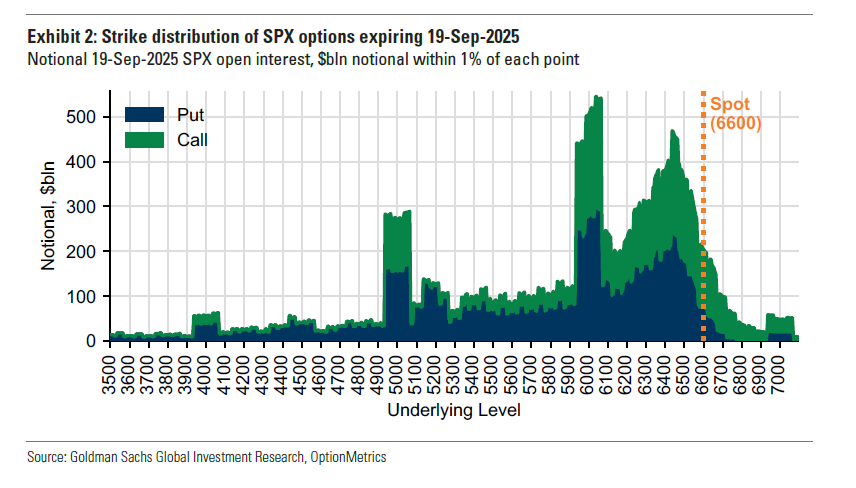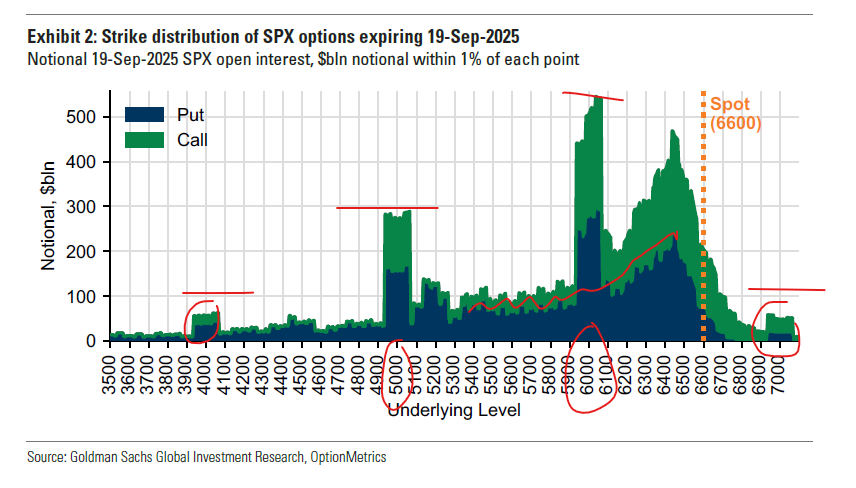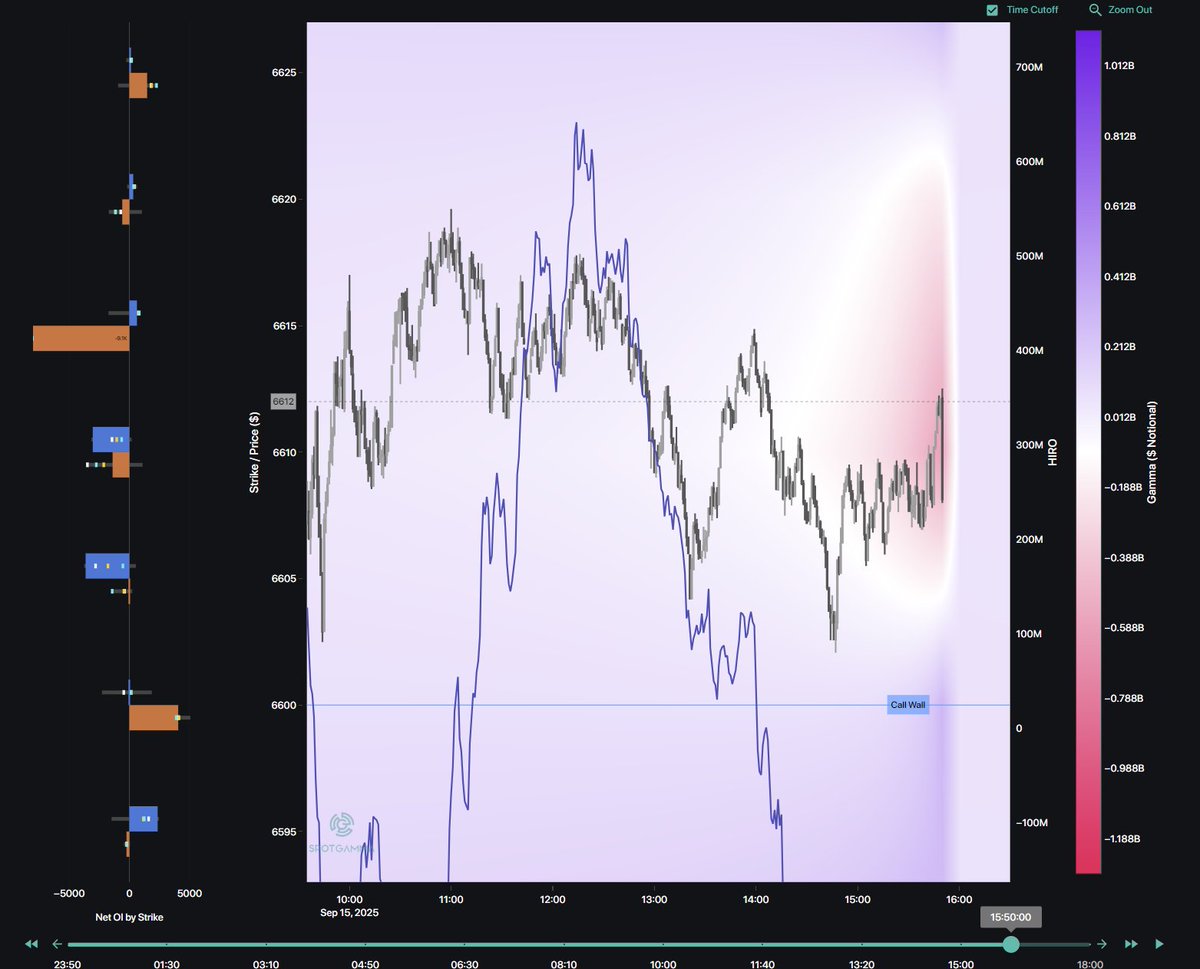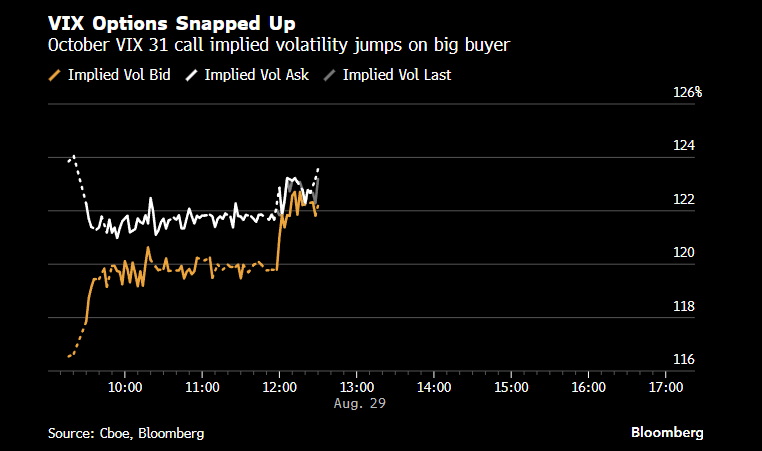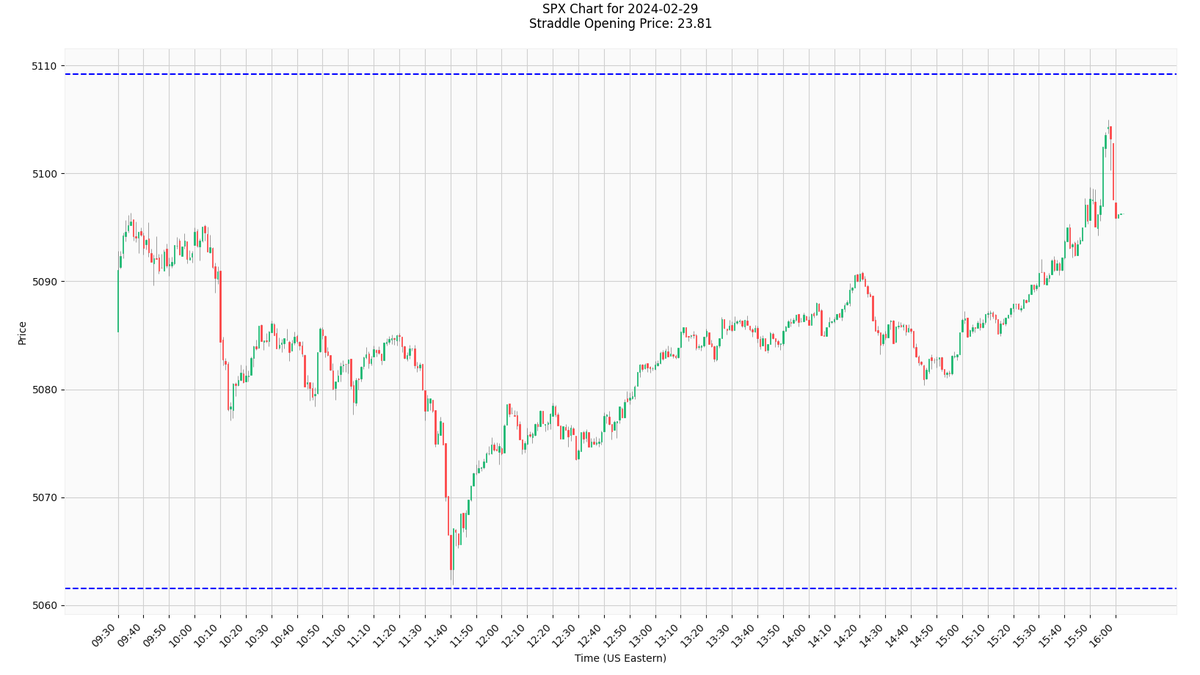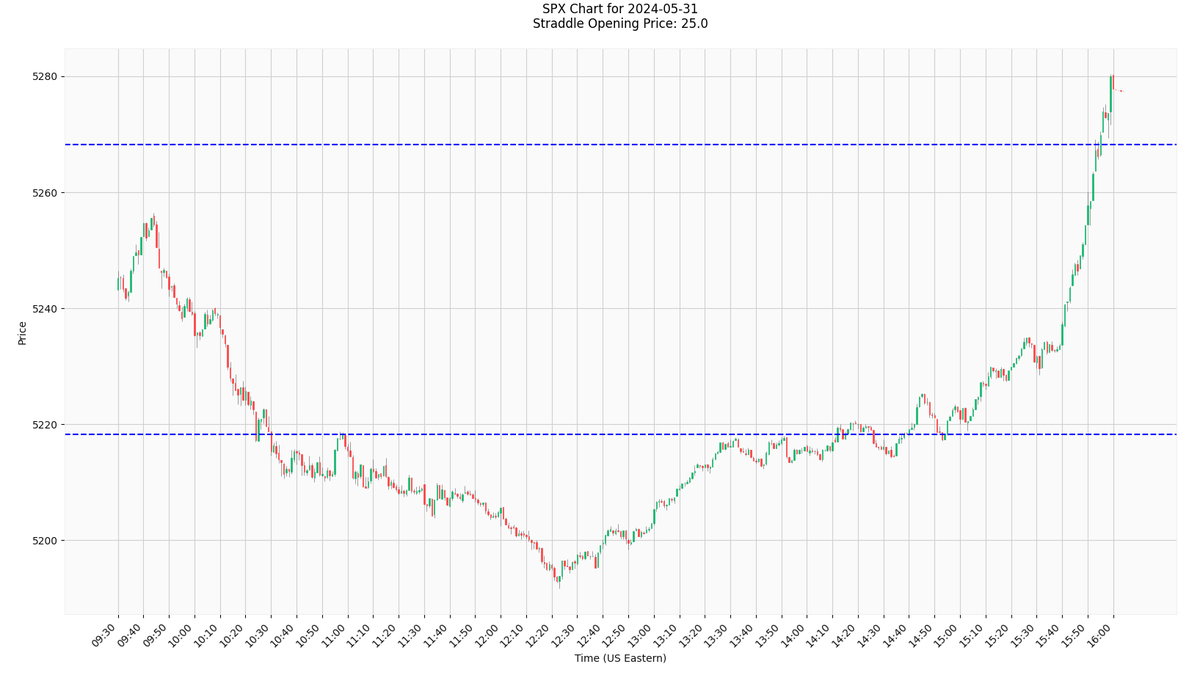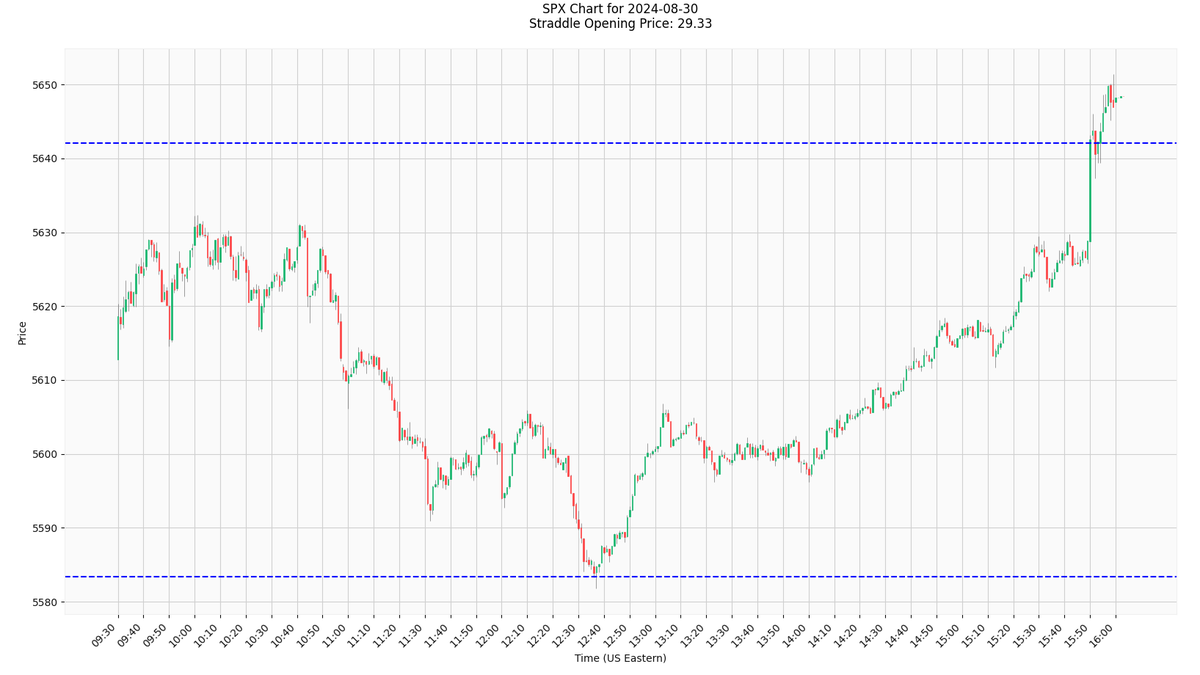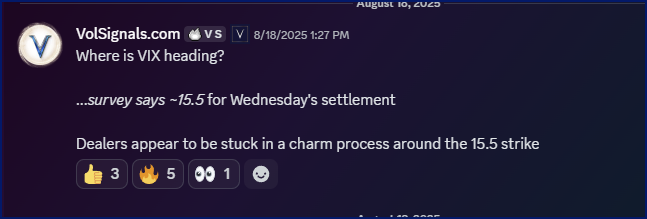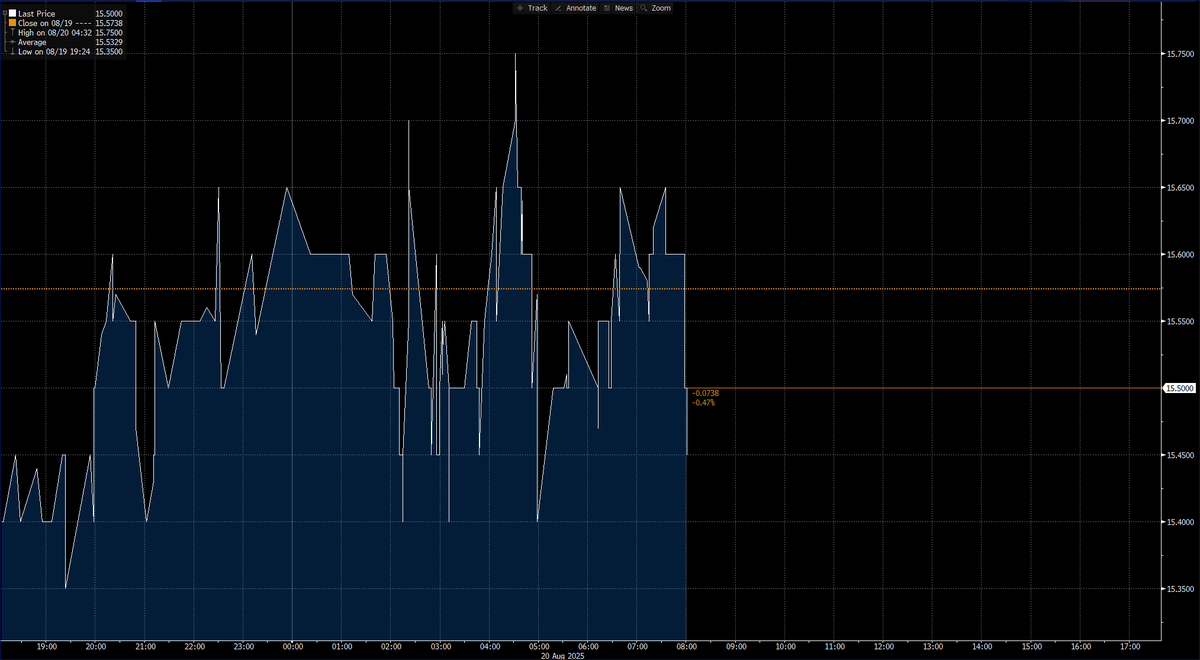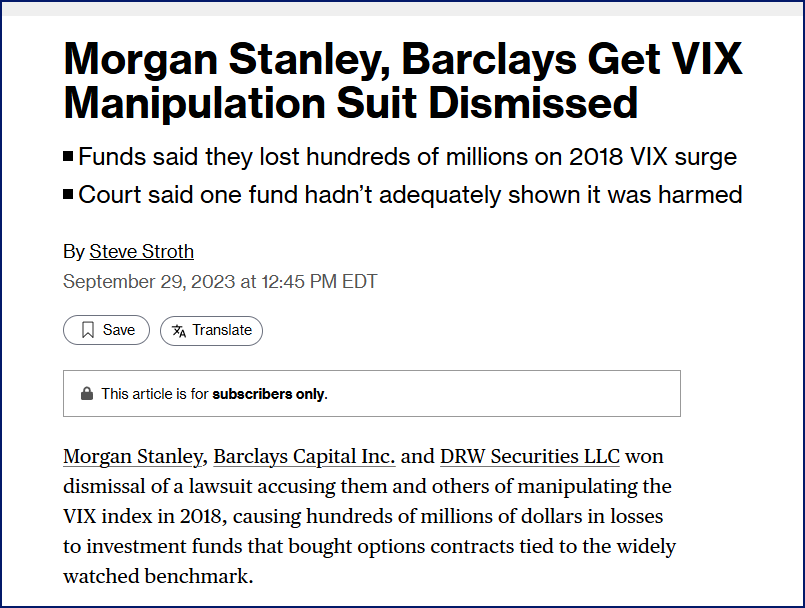Gamma defines how markets behave,
not which direction they'll move
When dealers are net short options that creates 'negative Gamma'
instead of providing liquidity we have to buy into rising markets and sell into declines
not which direction they'll move
When dealers are net short options that creates 'negative Gamma'
instead of providing liquidity we have to buy into rising markets and sell into declines
When dealers are net long options that creates 'positive Gamma'
we sell rallies and buy dips-
this is the norm for modern markets
we sell rallies and buy dips-
this is the norm for modern markets
It's common for markets to have EXTREME positive Gamma
but very uncommon for markets to have EXTREME negative Gamma
why?
but very uncommon for markets to have EXTREME negative Gamma
why?
When customers sell us options, we mark implied vols lower
All things equal, when you lower the implied volatility of an option, the amount of Gamma it has goes UP
...think about that-
All things equal, when you lower the implied volatility of an option, the amount of Gamma it has goes UP
...think about that-
When customers are selling us options-
we are:
1 - getting long lots of options (more positive gamma)
2 - lowering the implied volatility of the options we are long (even MORE positive gamma)
we are:
1 - getting long lots of options (more positive gamma)
2 - lowering the implied volatility of the options we are long (even MORE positive gamma)
When customers are buying options from us-
we are:
1 - getting short lots of options (more negative gamma)
2 - raising the implied volatility of the options we are short (this REDUCES the gamma per option)
we are:
1 - getting short lots of options (more negative gamma)
2 - raising the implied volatility of the options we are short (this REDUCES the gamma per option)
Read the last two tweets again-
there's an embedded asymmetry in the impact which options can have on the market, from a practical perspective
of course, at times, we are locally short lots of low volatility options and negative Gamma can be extreme
there's an embedded asymmetry in the impact which options can have on the market, from a practical perspective
of course, at times, we are locally short lots of low volatility options and negative Gamma can be extreme
but most of the time the market will benefit from how MMs price options in accordance with inventories
• • •
Missing some Tweet in this thread? You can try to
force a refresh


